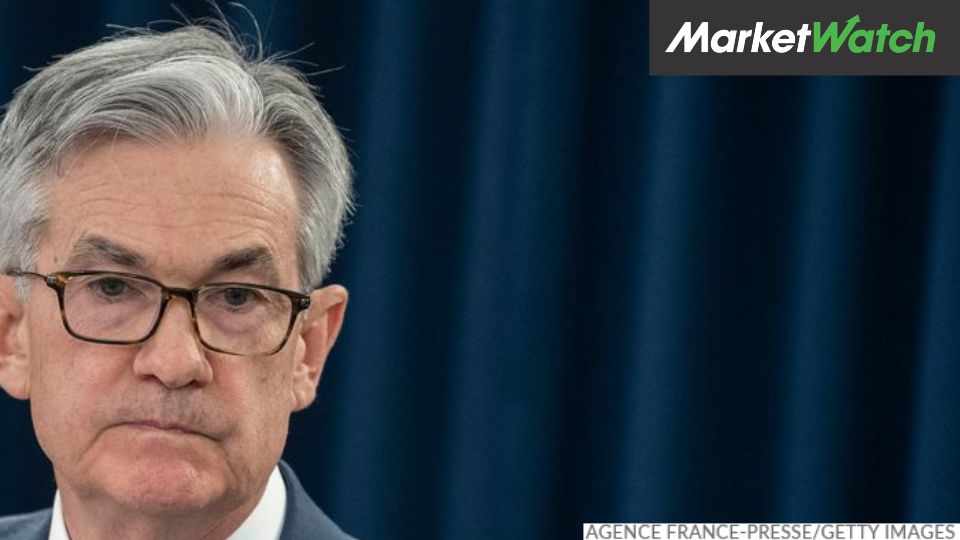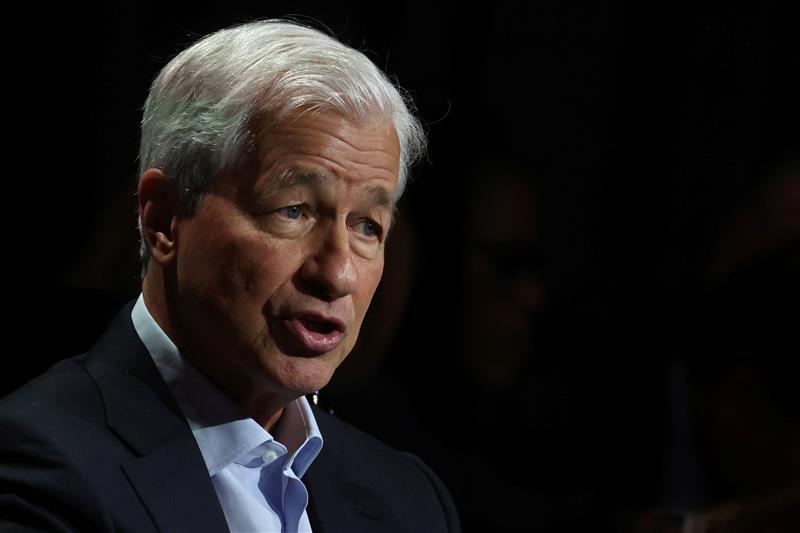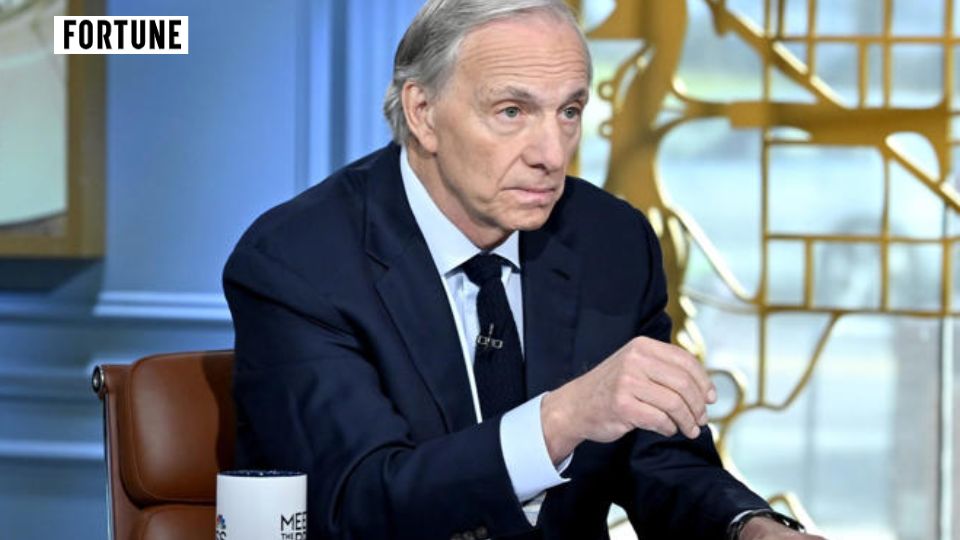
- “There is no chance we’re having a soft landing in the context of the most pernicious tightening by the Fed since the Paul Volcker years,” Rosenberg says.
- It’s equally interesting to hear Dimon talk about how great things are when the pace of bank lending, in the aggregate, is heading towards negative territory on a year-to-year growth basis for the first time since we pulled out of the Great Financial Crisis.
- What have the banks been adding to their balance sheet? Cash assets. So as the bankers show a “What, me worry?” face on television, what they’re doing is shifting their balance sheet from nonliquid assets, which are basically private-sector loans, towards cash. The banks are rapidly building liquidity, which is telling you that behind closed doors they are more concerned than they’re letting on.
- Then you have to ask, what is going on with the U.S. dollar if things in America are so hunky-dory?
The Federal Reserve and its chair, Jerome Powell, will end rate hikes soon, but the economic damage has been done, David Rosenberg says.
The stock market seems to be the odd man out.
It’s said that you don’t know an economy is in a recession until it’s in one. Or as David Rosenberg puts it: “Recessions are like an odorless gas. They sneak up on you.”
These days, Rosenberg is looking for fresh air. A former chief North American economist at Merrill Lynch and now president of Toronto-based Rosenberg Research, Rosenberg sees the U.S. Federal Reserve ending its rate hikes soon — but says the economic damage has been done. He expects U.S. businesses and consumers to cut spending, unemployment to rise, and companies and consumers to turn increasingly cautious as the U.S. economy slips into recession.
And, for anyone who is convinced that the Fed will pull off an economic “soft landing,” Rosenberg has two words: Dream on.
“There is no chance we’re having a soft landing in the context of the most pernicious tightening by the Fed since the Paul Volcker years,” Rosenberg says.
In a recent interview with MarketWatch, which has been edited for clarity, Rosenberg gives the Fed no credit — and no mercy. He elaborates on the sobering investment and economic themes and topics he discussed in a late April MarketWatch interview, and says recession is unavoidable.
With that in mind, Rosenberg steers investors into defensive, rate-sensitive areas of the stock market, including utilities, consumer staples and REITs. In the bond market, he advocates a “barbell” approach that positions a portfolio in both short- and long-term securities.
MarketWatch: U.S. Treasury Secretary Janet Yellen says she doesn’t expect a recession. J.P. Morgan Chase JPM, -0.49% CEO Jamie Dimon says U.S. consumers are in good shape. What does your crystal ball say?
Rosenberg: Janet Yellen is a politician. Why would she ever be calling for a recession? So we want to fade her views on the macro scene. She has a clear bias. And if I were in her shoes I would be saying the exact same thing.
It’s interesting to hear Jamie Dimon talk about how great a shape the U.S. consumer is in when we are seeing delinquency rates rise across virtually [the entire] gamut of the household borrowing space. It’s equally interesting to hear Dimon talk about how great things are when the pace of bank lending, in the aggregate, is heading towards negative territory on a year-to-year growth basis for the first time since we pulled out of the Great Financial Crisis. These bank CEOs may not be politicians, but they are quasipoliticians.
So to talk to me about what politicians are saying is a waste of time. To hear what bankers are saying on television, because they are quasipoliticians, is almost an equal waste of time. Look at the data. While we did escape the worst possible situation, which would have been systemic financial risk coming out of the banking crisis last winter, saved yet again by the Fed’s omnipresent, ubiquitous balance sheet, we are still heading into a period of significant tightening in bank lending guidelines. You’re seeing that because, even as deposits have started to stabilize over the past two months, bank credit has been contracting.
What have the banks been adding to their balance sheet? Cash assets. So as the bankers show a “What, me worry?” face on television, what they’re doing is shifting their balance sheet from nonliquid assets, which are basically private-sector loans, towards cash. The banks are rapidly building liquidity, which is telling you that behind closed doors they are more concerned than they’re letting on.
MarketWatch: You’ve been predicting a sharp U.S. economic downturn for a long time now, and yet the stock market keeps going up. How do you explain this, and what keeps you confident about your base case?
Rosenberg: Are you really asking me to fit my narrative into what the stock market is doing? The S&P 500 SPX, -0.27% peaked in September 2000; the recession that nobody saw coming started in March 2001. The stock market peaked in October 2007; the recession that nobody saw coming began in December, two months later.
In October of 2007 I was chief economist at Merrill Lynch. On Oct. 9 of that year, which was when the U.S. stock market hit its peak, I gave a presentation to the Federal Reserve in Washington. I was calling for a recession. The head honcho at the Fed who hosted me said, “Mr. Rosenberg, are you aware that the S&P 500 hit a new all-time high today, and here you’re talking about a recession.”
Can you imagine what would have happened if I changed my forecast because of what the S&P 500 did in October 2007? Should I have based my forecast on where I thought the stock market was going to be in October 2008? So the fact that we now have a speculative frenzy, animal spirits coming back and driving up the multiple in the stock market is just a stock-market story. It’s not telling you an economic story.
If there was truly a wave of inflationary growth coming, the 10-year Treasury TMUBMUSD10Y, 4.032% yield would be closer to 5% than 3.8%. We would be having a boom in commodity prices. If we were in some sort of domestic-demand-induced economic boom, why would the U.S. dollar DX00, -0.21% be moving into a bear market?
Think of the ridiculous situation we’re in. The Fed is pegging the funds rate in a 5.25% to 5.5% range. The 10-year Treasury yields 3.8%. What is the bond market telling you? The bond market is not telling you the same goldilocks story the stock market is telling you. When we look at the action in most raw industrial prices, including oil CL00, 1.28%, over the past year, it isn’t a very positive economic synopsis. Then you have to ask, what is going on with the U.S. dollar if things in America are so hunky-dory?
So, I would say that the stock market seems to be the odd man out.
Story by Jonathan Burton - Redacted shorter to keep to important points and bullet points added by HGG https://www.marketwatch.com/story/no-chance-were-having-a-soft-landing-stock-market-strategist-david-rosenberg-gives-powells-fed-no-credit-and-no-mercy-52ea2ed6



